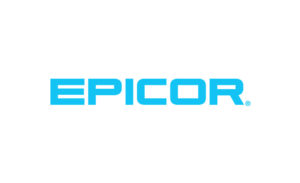While enterprise resource planning (ERP) software has been available in the cloud for more than a decade, it’s not quite the norm—though, adoption rates are increasing for distributors. This is largely driven by the need to provide exceptional customer service to remain competitive. Faster access, sales history, and customer relationship management (CRM) data built into cloud-based ERP solutions give distributors what they need to achieve the next level of customer service. There’s no longer a reason to delay this decision. With the rapidly changing technology environment impacting the entire supply chain landscape, it’s a good time to be in the cloud.
What Does Cloud Mean For my Business?
Fundamentally, moving to the cloud means that instead of having your software stored on hardware in house, it’s hosted over the Internet by the software provider. This transfers the burden of hardware and system maintenance from the end-user to the software provider.
Hosting your ERP in the cloud also means automatic updates and upgrades, which generally include the latest technological tools, advancements, and fixes to the software. This enables distributors to more easily leverage cutting edge technology such as artificial intelligence (AI) to flawlessly manage inventory.
One of the greatest aspects of being on the cloud is that it allows you to focus on the most important business at hand. You’re no longer burdened with budgeting for a software upgrade and going through the process of justifying a capital investment to get the best and latest tools for your business—like efficiently managing warehouse activities, optimizing your inventory, and supporting more services like VMI and manufacturing rentals. The software simply runs without you giving it a second thought.
What Are the Tangible Benefits?
Moving to a cloud solution versus on-premises is a strategic business decision that requires buy-in from all levels of the organization. Fortunately, there are many tangible benefits that support an undeniable case for the cloud as a strategic, future-oriented approach to simplify your ERP technology landscape.
- Total cost of ownership: Cloud-based ERP systems end up being more affordable and easier to implement, integrate, and maintain. Moving to the cloud allows companies to reduce their IT burden in order to refocus their resources on higher-value initiatives. Finally, when you’re on the cloud, you’re on an upgrade path—not locked into a highly custom, on-premises solution. This is more critical than ever.
- Reliability: Depending on the vendor, cloud-based ERP systems have greater than 99.5 percent uptime. This means that as long as you have an Internet connection, you have access to your data. In addition to system reliability, ERP systems in the cloud provide more reliable information because your data is in a single source of record.
- Security: The cloud is secure. If it wasn’t, there wouldn’t be so many available applications—or companies using those applications. Cloud solutions come with backup continuity, disaster recovery, and highly available redundant systems to avoid business interruption. Vendors offering cloud ERP solutions often have a system in place that constantly monitors information.
- Customer satisfaction: One of the many advantages of cloud ERP systems is that you can access customer data anytime from anywhere— allowing you to respond to customer requests and react to issues much more quickly. Putting your customers first is pivotal to gaining loyalty, but it can also lead to increased market share.
Why Should Our Distribution Business Move to the Cloud Now?
Moving to the cloud is a strategic business decision that should be weighed with many factors. There is no right way or time to make the move, but there are many triggers that propel distributors forward, including:
- Upcoming investments to replace servers
- Strategy to shift IT functions to more strategic business initiatives
- Loss of IT knowledge due to fluctuating workforce
- The desire for faster access to the latest technology
- A need to stay current with security best practices
- Access to continuous innovation through product enhancements
- Recruiting top talent to invest further in the business
An important consideration when moving to the cloud is the flexibility of the software vendor to provide you with options for a phased approach—maybe even over the course of months or years. This can help ease some of the fears associated with the all-in approach that some vendors take.
Take the Leap
Moving your ERP software to the cloud makes a lot of business sense, but it’s not a decision to make lightly. There may be cycles in your business where it’s easier to transition to a cloud solution, but— ultimately—hosting ERP on the cloud is only going to become more popular and practical.
One of the most important aspects of choosing an ERP vendor—whether you’re taking the leap to the cloud now or in the future—is finding one that will work with your business to identify the solution that works best for you and on your terms. For more than 45 years, Epicor has been providing ERP solutions to distributors that enable them to make strategic decisions and bring value to their organizations.
Visit Epicor's Distribution Software page to learn how Prophet 21 in the cloud can help you grow, thrive, and compete in the ever-changing distribution landscape.





